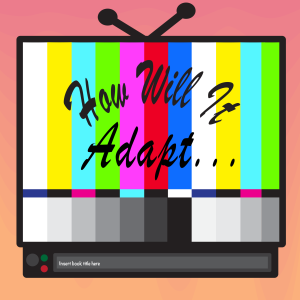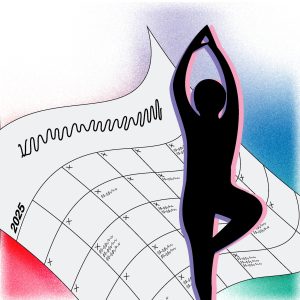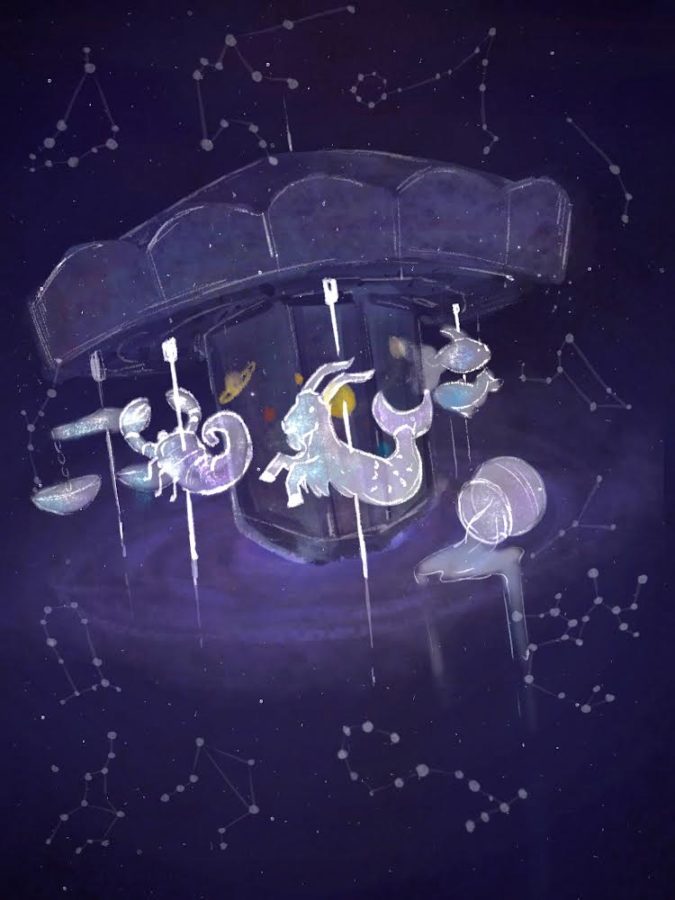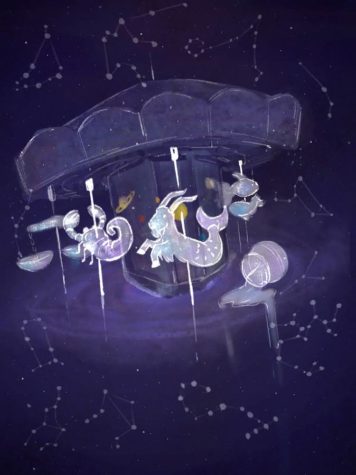Cosmic Carousel: A Turn Toward the Origins of Astrology
As I was walking to classes, I thought about how I should name my blog to convey the meaning I wanted to bring.
I was listening to an indie playlist when the word “carousel” caught my attention. A carousel gives me a light journey sensation since the people who usually go on it are children. A carousel can also be seen from different perspectives; thereby, astrology can also be interpreted from divergent angles. A carousel is always in movement, like the sky, which is constantly changing.
“Cosmic Carousel” surged due to my interest and my passion for astrology. It caught me at the point of creating a blog to talk about it, even though I am not an astrologer or an expert in the area. I sincerely think astrology can facilitate our lives. Astrology inspires me to look inward. What I want to discuss in this blog is how to make your life easier by following astrological transits and seeing how they can affect your life.
Now, I want to turn the carousel to the roots of astrology.
I promise this will not sound like a history class, but I think it’s essential to understand the origin of where the feared Mercury retrograde comes from or why certain questions (e.g. “Why are so many signs stereotyped?”) pop up.
The omnipresence of astrology
The truth is that astrology cannot be dated linearly. At the same time it was happening in Mesopotamia, astrology was being cultivated in Egypt, India, China, Greece and other places.
People started to observe the sky and correlate it with their own lives.
At first, astrology was something beneficial just for the aristocracy — made by the priestly, who the kings wanted to consult. This aspect changed in the era of Alexander the Great.
Mesopotamia and Egypt
In Mesopotamia, where the first zodiacs surged, the Babylon Period was marked by people’s registers of the eclipses. Indicators like the planetary charts were significant in determining the origins of astrology.
Egypt had celestial letters dated in 4,200 B.C. and horoscopes dated in 3,000 B.C., which means they were simultaneously developing astrology with Mesopotamia. In this time, there are some essential things to notice: the constructions of pyramids were also made for watching the transits of the sky; the Egyptian calendar, used until nowadays — with just some adaptations — was built around the “Sotiac cycle”; the distinguishment between planets and stars are a legacy left by the Egyptians.
The time of Alexander the Great created a cultural exchange, which brought the Hellenistic philosophy to Mesopotamia. Greek was the dominant language, and people started to question the deep meaning behind life.
More proof of the non-linearity
India, Far East Asia and Central America were also places that proved astrology didn’t develop linearly. These places have astrological bases distinct from the East classic astrology; they were very complex in their calendars, mainly interfered by the moon, sun and Venus cycles. Even Moses knew about astrology since he marked the Exodus in the night of a full spring moon, suggesting he knew the moon phases.
Ancient Greece and Rome
Plato and Aristotle believed intensely in the correlations between the sky and human life.
The mysterious Western knowledge was something that enchanted people.
With Roman domination, the laicization of astrology was initiated, which means different social classes – not just from the priestly – were in touch with astrology. It was also in this period when the Tetrabiblos — the most important manual of astrology for 1,000 years — was made, being the first treaty of astrology. The first collection of horoscopes was also created in this period.
Lots of skepticism increased with Imperial Rome. Christianity became the state’s official religion and the practice was condemned. People were suspicious about astrology and didn’t want the population to connect with it.
Astrolabe and Arabic Astrology
Arabic astrology (750–1,550 C.E.) was created by compiling and translating much written work from Greek to Arabic and then to Latin. Arabic astrology was an extension of the astrology tradition. It was due to the astrolabe developed by Arabs that we are able to better understand the celestial positions.
Renaissance, XVII, XVIII, XIX and XX centuries
The Renaissance was a prestigious time, facilitated by a number of low skeptics. Nearly everyone believed in astrology and, when criticized, it was for political, not religious, issues. The Geocentric model of the solar system fell in popularity and opened space for the Heliocentric model, which changed perspectives.
In the XVII century, members of the Rosae Crucis fraternity, like William Lilly, created the Christian Astrology. The dichotomy of astrology vs. astronomy became apparent. In 1666, astrology was banished from all disciplines ministered in universities.
Astrology was increasingly discredited, and with the XVIII century in the “Enlightenment period,” it fell out of favor with the increasingly rationalist times. In 1770, the last astrology course ministered in Spain was closed. Astrology in Europe was maintained just in the hands of a small group of people for more than a century. The Belle Époque brought astrology to media stations; it was successfully approached in books, magazines and broadcasts.
In these controversies over whether astrology is a science or not, humanist astrology was born — focused on each personal case incorporated in modern psychology — and we use it to this day.
With all these curiosities covered, I appreciate that everything started with the magic of observation and attention to what nature was telling us.
Looking through cycles is an excellent way of learning and making connections with our own life; we’re going to talk a lot about them here.
We remain here for today.
And never forget, when talking about astrology, observation is the key to learning.
Your donation will support the student journalists of Kent State University. Your contribution will allow us to purchase equipment and cover our annual website hosting costs.














Ashley Mauric • Dec 19, 2023 at 5:01 pm
Am very happy telling everyone here my testimony i am Ashley Mauric from united state, am a nurse,this is a story of my love life.I have been married for 4 years and on the 5th year of my marriage, another woman had to take my husband away from me living me and the kids to suffer for 2 years until i met a post where this man Dr. Ehi have helped so many people in the relationship and i decided to give him a try to help me bring my husband back home and believe me all i did was to send my picture to him and that of my husband and after 48 hours as he have told me, i saw a car drove into the house and behold it was my husband and he have come to me and the kids and that is why i am happy to share to everyone having similar problem to meet with this man and have your lover back to yourself. You can contact him with this email address shomorikaspelltemple @ yahoo . com Thank you Dr Ehi. I am sure he will do same to help you all
Daniella • Feb 23, 2022 at 1:21 pm
That is so interesting!! I love Astrology but I didn’t know all about its foundations and history! It was amazing to read more about it, can’t wait for more Cosmic Carousel posts!